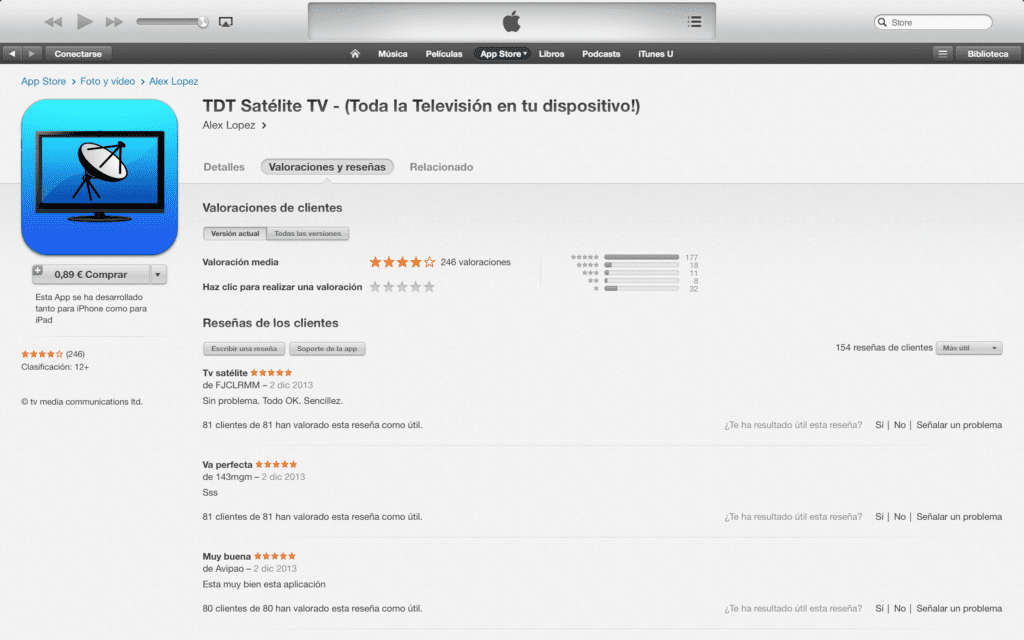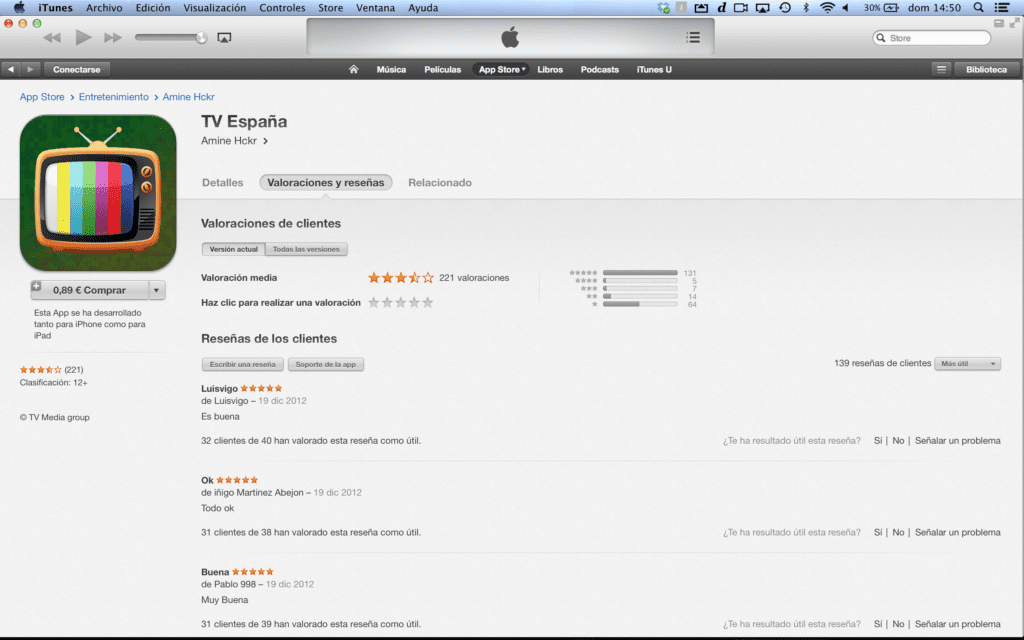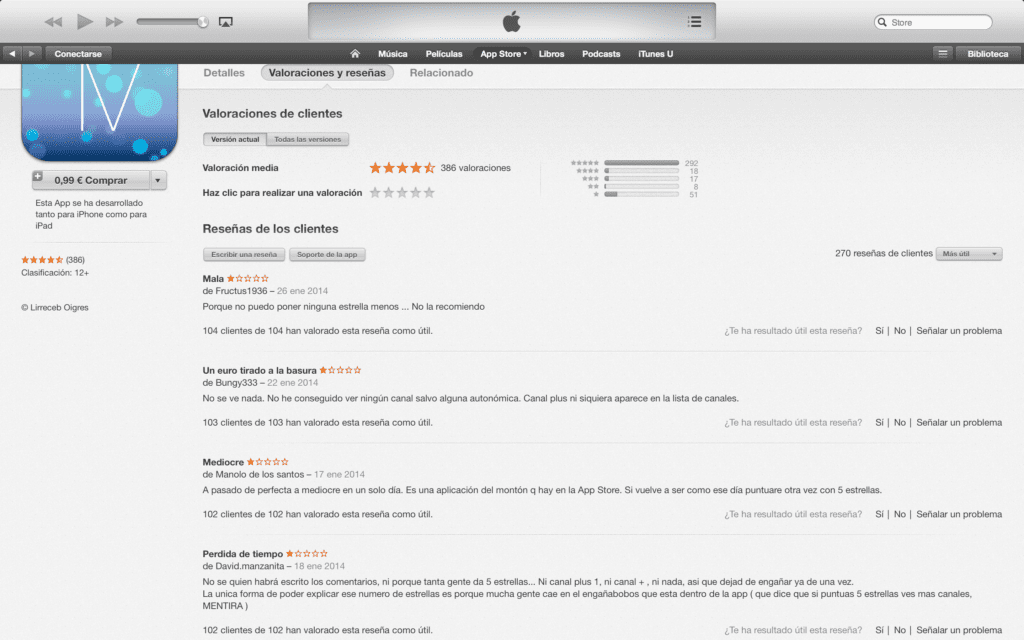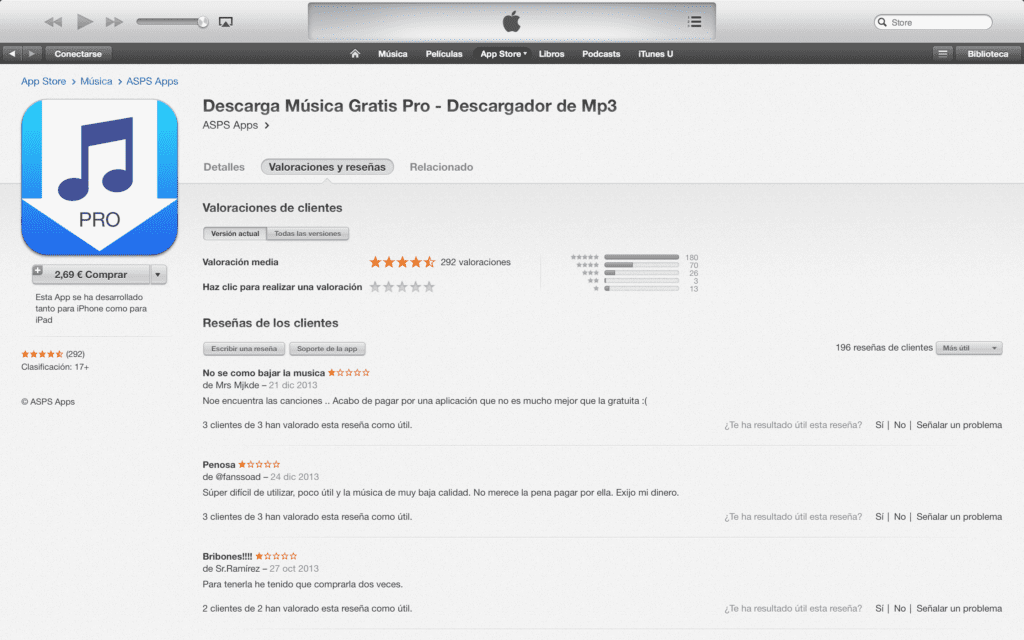If a few years ago we told you about a dubious ethical practice that was taking place in the App Store, today we are going to tell you another case of picaresque, to call this in a friendly way.
El App Store is probably the best mobile app store, just take a look around Google Play to get lost for a while. But with practices like the one we are going to tell you about today, the App Store certainly lose some credibility, especially when buying our games and applications.
Different studies show that the user who buys mobile applications buys on impulse, but that percentage is increasingly lower, users increasingly look at the description of the Apps, and increasingly study the opinions of other users, the app reviews.
And this is where the strategy comes into play, the picaresque with large doses of evil, and I speak of evil, because the practice in question hurts the market, hurts users who are deceived, and hurts other developers who are not. execute this practice.
iTunes and the usefulness of reviews
When we access the App Store, either from our iPhone or our iPad, and we are interested in an application, we can see the ratings of the users, there is a section for it: Reviews, here the same will appear ordered most useful unless, and you will wonder: Who says a review is useful? Well, the users, or in this case we should say: the cheaters.
If we access iTunes from our Mac or PC, and we enter the App Store, if we click on any App, there is also a section on Reviews, if you look at each review Apple Lossless Audio CODEC (ALAC), asks if it has been useful or not, well, it is this factor that takes into account the App Store to put the order of the reviews that we read when we want to buy an application from our device.
Everything would be fine if a user clicks on a certain review because it has been useful, but the percentage of this is almost nil.
The cheaters
There are developers, to call them something, whose only job is rate positive reviews of your apps as useful, how do they do that? Creating fake accounts in iTunes, a practice totally prohibited by Apple Lossless Audio CODEC (ALAC),, and that it is grounds for expulsion if the developer is discovered.
Take a look at these two example applications (there are many others in the App Store), five-star reviews are at the top, up to 81 people have rated the five-star reviews as helpful. Woof! Amazing!
If this practice is already of doubtful morality, because with it the positive reviews will always be those that the users who access the App from their iPhone o iPad, conditioning him, and deceiving him in many cases, to buy that App and not another, the worst is the second part of the activity, because they do the opposite practice with the applications of other developers, that is, if a developer has created a good application, and has 10 negative stars, and 30 positive, with this practice, the user who accesses the application in question to buy it , you will always see negative reviews and will not buy the App.
This case is more bloody, the App has almost 300 positive reviews, and has only 51 negative stars, and more than a hundred people have rated all negative one-star reviews as useful!
A worldwide practice
This practice that some developers follow to sell their applications and discredit others, is worldwide, since they create fake accounts in all the countries where they sell, they score as useful the reviews that have 5 stars in their Apps, and applications similar to those theirs, the most negative score as useful. Undoubtedly, this practice conditions and distorts the market for App Store.
Something similar happened long ago
Done the law done the snare, or so the saying goes, and cheats there are in all professional fields.
A couple of years ago, the order of the reviews was not by utility, it was by publication, that is, the last ones published were the first.
Then, the cheaters, every day since iTunes, updated positive reviews that they had created themselves with fake accounts iTunes, so that app always had five-star reviews at the top, and that's what the prospective buyer saw. In turn, they updated the most negative ones from other developers, so that those Apps always had the most critical ones first.
I don't have the magic formula, but Apple Lossless Audio CODEC (ALAC), must do something against this picaresque, so that the App Store be a clean market, without this dirty game, since the main loser is the user, who thinks he buys something of quality because of the positive reviews, and then he finds an application of doubtful use.
El App Store It cannot seem like a lawless city, where cheaters play with the market as they please, without any scruples.
So if you are a regular consumer of mobile applications, be wary of an application that has all the positive stars first, as well as those that have only one star.
To buy an App the most important thing are the recommendations, someone who has tried it, or a review on the network, or that you trust the developer who created the App.
Tell us about your experiences with him App Store in a comment or on social media.





Very good post. This technique is used a lot unfortunately. Let's hope Apple does something. In the world of the podcast it also happens. Some podcasts that are a few days old receive a lot of 5-star ratings when the show is sad and they rank high ...